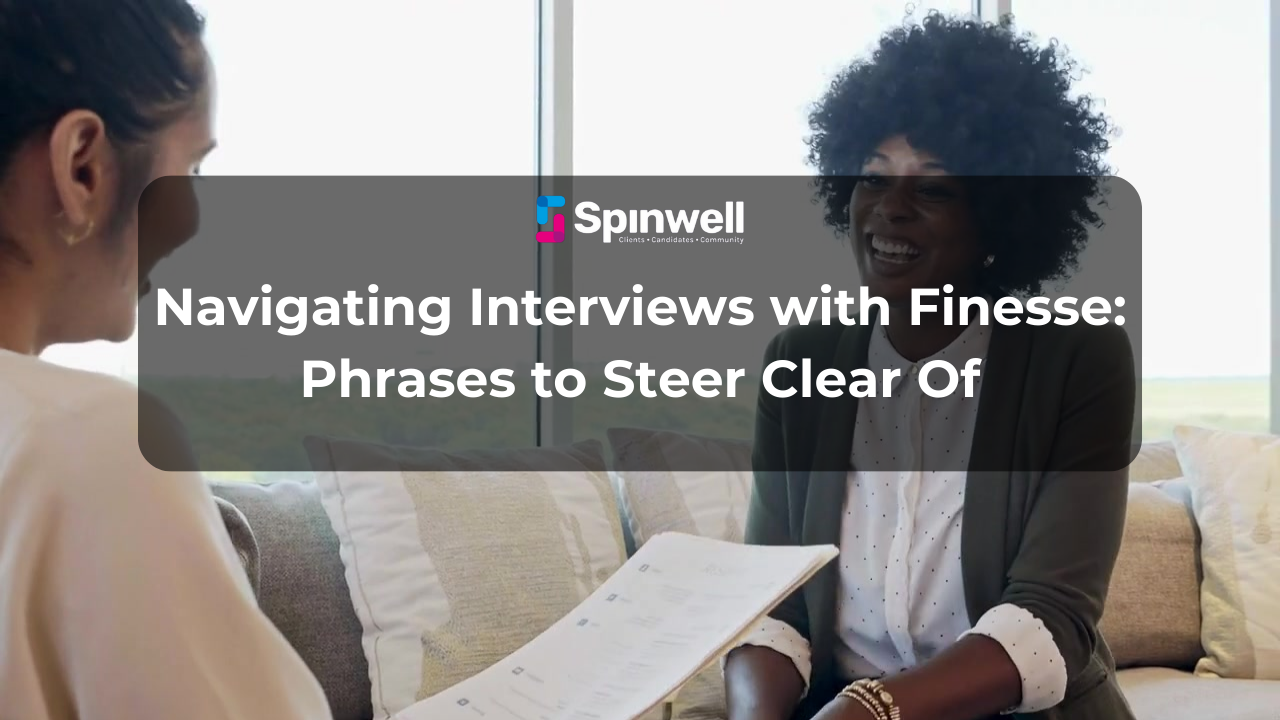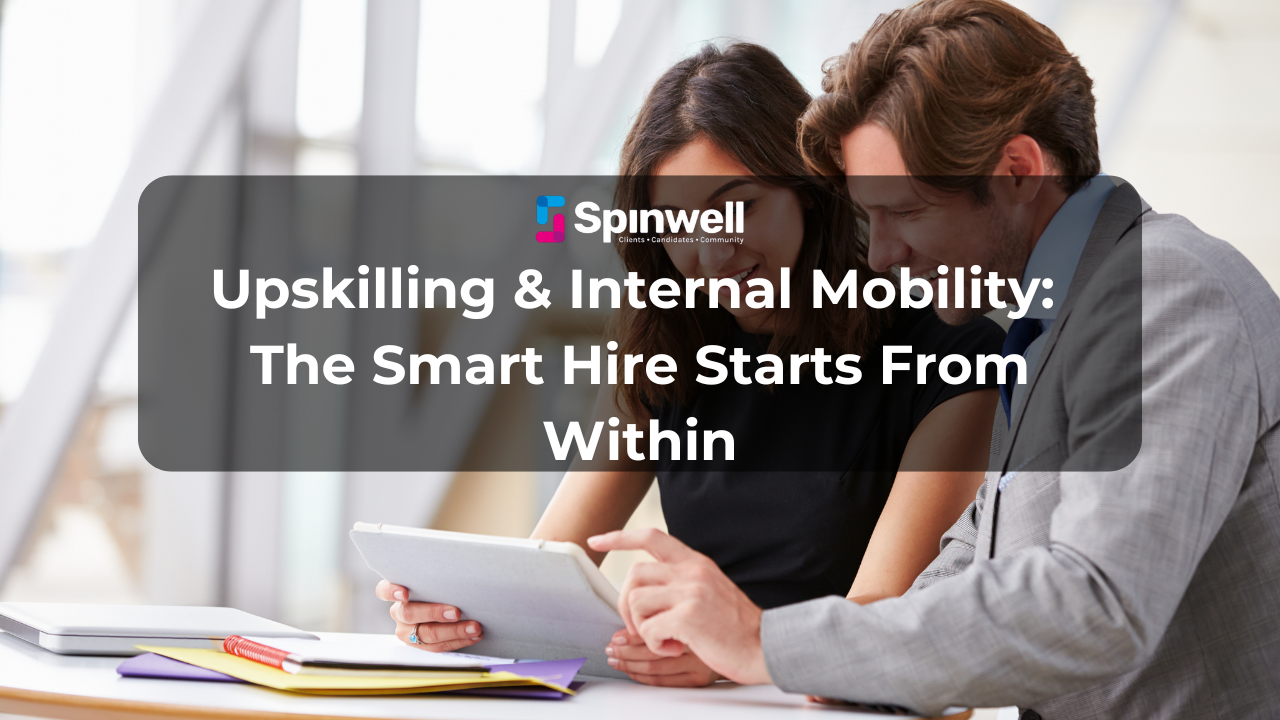
Navigating Interviews with Finesse: Phrases to Steer Clear Of

Job interviews are crucial opportunities to showcase your skills, experience, and personality to potential employers. However, it’s not just what you say that matters, but also how you say it. Your choice of words can significantly impact the impression you create.
In this blog post, we will explore some common phrases to avoid during interviews, helping you navigate these conversations with confidence and professionalism.
- “You guys”:
Using this phrase might seem harmless, but it can come across as overly casual and unprofessional. Instead, address the interviewer and the company by their proper names or use more respectful terms like “your organization” or “your team.”
- “I don’t have any weaknesses”:
While it’s tempting to present yourself as flawless, claiming to have no weaknesses can raise eyebrows. Employers value self-awareness and the ability to acknowledge areas for improvement. Instead, highlight a challenge you’ve faced in the past and discuss how you proactively addressed it, showcasing your growth mindset.
- “Obviously”:
Using this word assumes that the interviewer shares the same knowledge or perspective as you, which can be off-putting. Avoid making assumptions and aim for clear and concise communication without resorting to this potentially condescending term.
- Sentence fillers:
Fillers like “um,” “like,” or “you know” can diminish your credibility and make you appear less confident or prepared. While it’s natural to have a few fillers here and there, practice and record yourself to identify and minimize their usage, ensuring your answers are smooth and polished.
- Overused words:
Certain words have become so frequently used in interviews that they have lost their impact. Steer clear of these overused terms to avoid sounding generic or unoriginal. Instead, strive to use more specific and unique language that highlights your individuality and enthusiasm.
- Negative comments about previous employers:
Speaking negatively about past bosses or companies can raise concerns for interviewers. Maintain a positive and professional tone when discussing previous experiences, focusing on what you learned and how you grew rather than dwelling on the negatives.
- Details about personal life:
While it’s important to build rapport with interviewers, sharing excessive personal information that is unrelated to the job can be distracting and unprofessional. Stick to discussing your qualifications, experiences, and your genuine interest in the role.
- Asking about salary too early:
While salary is an essential consideration, inquiring about it too early in the interview process can give the impression that you are solely motivated by money. It’s best to wait until further along in the conversation, when the interviewer brings up the topic or when you receive an offer.
Effective communication is key to success in job interviews. By avoiding these common phrases, you can present yourself as a polished and professional candidate, leaving a lasting positive impression on interviewers. Remember to be mindful of your language choices, practice your responses, and focus on showcasing your qualifications, experience, and enthusiasm for the role. Good luck with your interviews, and may your words convey your true potential!
Get in touch with us
NK






